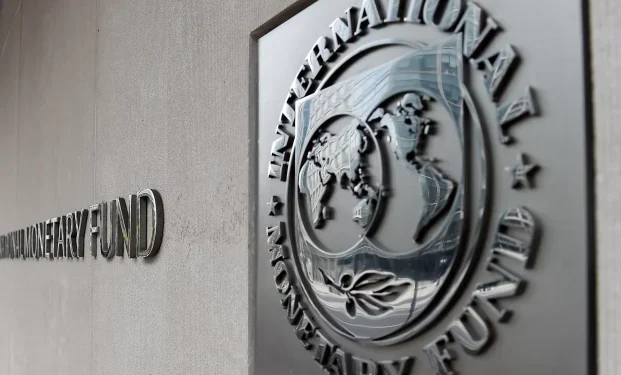IMF Says Egypt Should Be Vigilant in Easing Interest Rates
The International Monetary Fund (IMF) has underscored the importance of cautious monetary policy in Egypt, particularly as the country navigates a complex economic landscape marked by high public debt, inflation dynamics, and external risks. While Egypt’s central bank has maintained short-term interest rates near 9.6–9.7% since 2023/24, the IMF’s 2025 review signals that policymakers must tread carefully before considering rate cuts. This analysis explores the rationale behind the IMF’s stance and its implications for investors.
Ask Aime: Is the IMF’s cautious stance on Egypt’s monetary policy a cause for concern for retail investors?
The Flexible Exchange Rate: A Foundation for Stability
Egypt’s shift to a flexible exchange rate system in March 2024 marked a turning point. By allowing the Egyptian pound to fluctuate more freely, the central bank eliminated parallel market premiums, reduced import backlogs, and revitalized foreign exchange markets. However, the IMF notes that the exchange rate remains constrained within a “limited fluctuation range,” emphasizing the need to fully embrace market-driven adjustments. This framework is critical for anchoring inflation expectations and avoiding external imbalances.
Inflation Dynamics and Base Effects
Egypt’s inflation rate has fallen sharply since late 2023, dropping from 27.5% in FY2023/24 to a projected 16.6% by the end of FY2024/25. The IMF attributes much of this decline to base effects following the 2024 exchange rate liberalization, which temporarily suppressed price pressures. However, the Fund warns that sustaining disinflation will require more than short-term fixes.
Monetary policy must remain responsive to underlying inflation drivers, such as food prices and energy costs. While the central bank has flexibility under its inflation-targeting regime, premature easing could risk a resurgence in inflation—a lesson from past cycles of volatility.
Structural Reforms: The Unseen Pillars of Stability
The IMF’s recommendations extend beyond interest rates to systemic reforms that reduce pressure on monetary policy:
- Reducing Public Sector Dominance: Egypt’s state-controlled enterprises and subsidies continue to crowd out private investment and inflate fiscal deficits. The IMF urges privatization of non-strategic sectors to reduce public borrowing needs, which currently account for 90.9% of GDP. Lower fiscal deficits could free up capital markets and ease upward pressure on interest rates.
- Debt Management Strategy: With gross public debt at nearly 91% of GDP, Egypt’s reliance on domestic and international borrowing remains a vulnerability. The IMF stresses the need for a medium-term plan to extend debt maturities and diversify funding sources, which would stabilize borrowing costs.
External Risks: A Constant Headwind
Egypt’s economy remains exposed to geopolitical shocks, such as disruptions to Red Sea trade routes—a risk that cost the Suez Canal $6 billion in 2024. The IMF highlights that such events could destabilize exchange rates and reignite inflation, necessitating a robust monetary policy buffer. A flexible exchange rate and inflation-targeting framework are critical to absorbing these shocks without resorting to abrupt rate hikes.
Climate Resilience: A New Frontier for Stability
The IMF’s $1.3 billion allocation under its Resilience and Sustainability Facility (RSF) targets climate reforms, including decarbonization and infrastructure upgrades. These initiatives could indirectly support lower interest rates by reducing economic vulnerability to climate disasters. For example, resilient energy systems would lower the risk of supply-driven inflation spikes.
Conclusion: Vigilance, Reforms, and Patience
The IMF’s message is clear: Egypt’s central bank must maintain a cautious stance on interest rates until structural reforms and inflation control are fully entrenched. Key data points underscore the urgency:
– Public debt at 90.9% of GDP demands fiscal discipline to avoid crowding out private investment.
– Inflation at 16.6% is still elevated compared to emerging market peers, necessitating vigilance to prevent backsliding.
– External risks, from trade disruptions to geopolitical instability, require a monetary policy that remains agile.
Investors should monitor two critical metrics: the trajectory of Egypt’s 3-month T-bill rate (currently 9.6%) and the primary fiscal balance, projected to reach 4.4% of GDP in 2024/25. Sustained improvement in these areas would signal a path toward lower rates and greater macroeconomic stability. However, without deeper reforms, Egypt risks a repeat of past cycles where temporary gains gave way to renewed instability. For now, the IMF’s call for vigilance is a reminder that patience—and structural change—are prerequisites for lasting growth.







